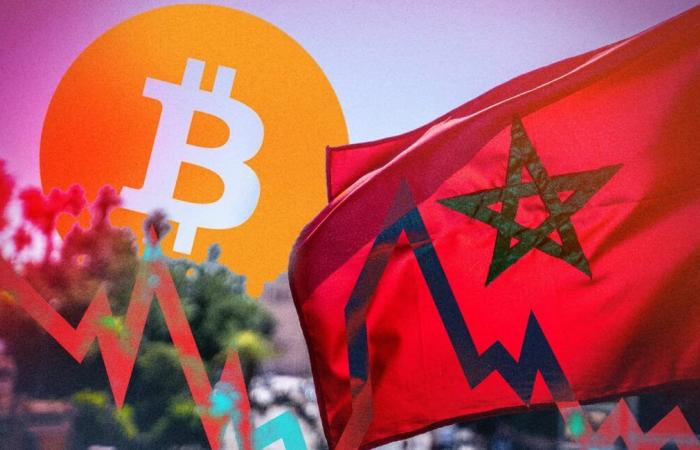
In a continent where access to financial services remains limited for a large part of the population, blockchain is emerging as a disruptive technology capable of transforming the economy. More than just a technological tool, it represents an opportunity for wealth redistribution and economic participation. But what are the challenges and opportunities it offers for financial inclusion in Africa?
Nearly 57% of adults in sub-Saharan Africa are still excluded from traditional banking systems, according to World Bank data. This lack of inclusion limits their ability to save, invest, or access credit services. With blockchain, these barriers are partially removed. Thanks to solutions like digital wallets and crypto-assets, individuals can participate in financial ecosystems without going through traditional banking institutions.
A prominent example is blockchain-based cross-border transfer platforms, which reduce transaction costs and eliminate intermediaries. In a continent where remittances represent a significant part of household income, these tools provide a breath of economic fresh air. Indeed, millions of Africans living abroad use these services to send money to their families, thus avoiding the excessive costs of traditional services.
Blockchain stands out for its transparency and immutability. Each transaction is recorded in a distributed ledger, accessible to all users. This reduces the risk of fraud and ensures increased traceability, crucial elements for building trust in economies often marked by opacity.
New horizons for SMEs
In Africa, these characteristics find concrete applications. For example, the tokenization of land assets allows for the granting of digital property titles, reducing land-related conflicts. This process also provides small landlords with access to credit instruments based on their assets. Similarly, in the healthcare sector, blockchain can be used to manage medical records securely and transparently.
Read also|The regulation of cryptocurrencies in Morocco, an opportunity to boost the market
Small and medium-sized enterprises (SMEs), a pillar of the African economy, also benefit from the opportunities offered by blockchain. By facilitating access to alternative financing methods such as initial token offerings (ICOs) or crowdfunding platforms, this technology reduces the dependence of SMEs on banks.
Additionally, blockchain enables better supply chain management, ensuring product traceability and strengthening consumer trust. For agricultural SMEs, for example, this can translate into increased valuation of products on international markets. Industrial SMEs can, for their part, use blockchain to optimize their logistics processes and access new markets.
With mobile access covering more than 80% of the African population, blockchain is emerging as an ideal tool for reaching a wide audience. Initiatives like Ubuntu, which tokenizes assets like gold, allow millions of Africans to save or invest from very small amounts. This accessibility promotes the economic participation of rural populations who are often excluded from traditional financial systems.
The challenges to be met
Additionally, ongoing central bank digital currency (CBDC) projects in several African countries are paving the way for broader adoption of blockchain technologies. These currencies could not only reduce economic transaction costs but also include previously ignored segments of the population. For example, the eNaira in Nigeria illustrates a country’s efforts to digitize its economy and offer innovative financial services.
Despite its promises, blockchain in Africa faces several challenges. Financial education remains a major challenge to enable mass adoption. Many Africans have limited knowledge of crypto-assets and their applications. Awareness campaigns and targeted training programs are essential to democratize this technology.
Furthermore, technological and regulatory infrastructures still need to be strengthened. The creation of appropriate legal frameworks and the fight against fraudulent uses of blockchain are essential prerequisites for its development. Governments must also invest in digital infrastructure to ensure equitable access to blockchain-related services.
Towards a more inclusive economy
Blockchain offers a unique perspective to transform the African economy and drive large-scale financial inclusion. However, for this technology to realize its full potential, it is essential that governments, institutions and private actors collaborate.
-Read also|3 questions to Haroun El Aouad: “Blockchain will revolutionize the financing of Moroccan SMEs”
Africa is at a crossroads where it can capitalize on this technology to build a more transparent and accessible economy. By leveraging public-private partnerships and fostering an innovative ecosystem, Africa can become a global leader in blockchain adoption. The future of financial inclusion in Africa could well involve this technology. A more transparent, more accessible, and more participatory economy is within reach, provided that the challenges that still stand in its way are met.
With concerted efforts and a clear vision, blockchain could become a key catalyst for deep and lasting socio-economic change in Africa. Investing in education, infrastructure and regulation will be crucial to realizing this potential. The future of financial inclusion in Africa is bright, and blockchain could well be the main driver.
The Role of Public-Private Partnerships
To successfully adopt blockchain in Africa, strengthening public-private partnerships is essential. These collaborations can accelerate the implementation of innovative projects and create a favorable environment for blockchain adoption. For example, co-creation initiatives between governments, technology companies, and financial institutions can facilitate the integration of blockchain into public services, such as digital identification, land management, and health systems.
Public-private partnerships can also help raise the necessary funds for the development of technological infrastructure and the establishment of appropriate regulatory frameworks. By working together, the public and private sectors can share risks and maximize the opportunities offered by blockchain.
Education and Awareness
Education plays a crucial role in blockchain adoption. To overcome the challenges related to ignorance and distrust of new technologies, education and awareness initiatives must be put in place. Governments and non-governmental organizations (NGOs) can organize workshops, seminars and awareness campaigns to explain the benefits of blockchain and demystify related concepts.
Additionally, educational institutions can include blockchain courses in their academic programs to train a new generation of professionals skilled in this technology. By investing in education, Africa can ensure that its citizens are well-informed and capable of using blockchain effectively and securely.
Sustainable Development Opportunities
Blockchain can also play an important role in sustainable development in Africa. For example, it can be used to track the value chain of agricultural products, ensuring that sustainable practices are respected and rewarded. Farmers can benefit from the transparency offered by blockchain to prove that their products are organic and fair trade, which can open up new markets and increase their income.
In the energy sector, blockchain can facilitate the management of decentralized electricity networks and encourage the adoption of renewable energy. Microgrid projects, which use blockchain to track energy production and consumption, can improve access to electricity in rural areas and reduce dependence on non-renewable energy sources.
The Future of Blockchain in Africa
The future of blockchain in Africa is full of promise. With concerted efforts and strong political will, blockchain can transform the continent’s economic landscape. Governments must play a facilitating role by creating an enabling regulatory environment and investing in the necessary infrastructure.
Businesses, for their part, must seize the opportunities offered by blockchain to innovate and develop. By adopting this technology, they can improve their competitiveness and contribute to the economic growth of the region.
In short, blockchain should not be seen only as a technology, but as an opportunity for transformation and inclusion. Governments, businesses and citizens must mobilize to integrate this technology responsibly and effectively, paving the way for a new era of prosperity and equity in Africa.










